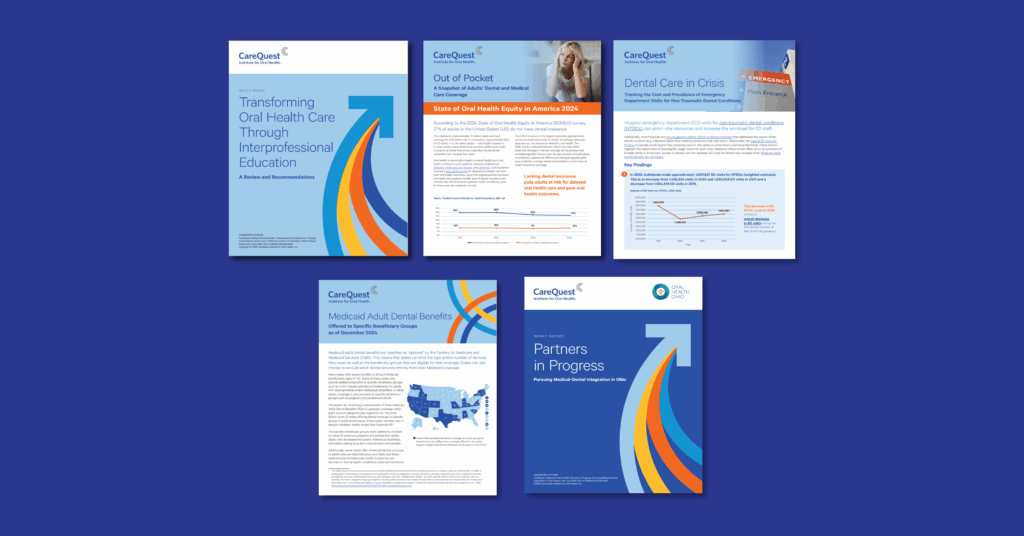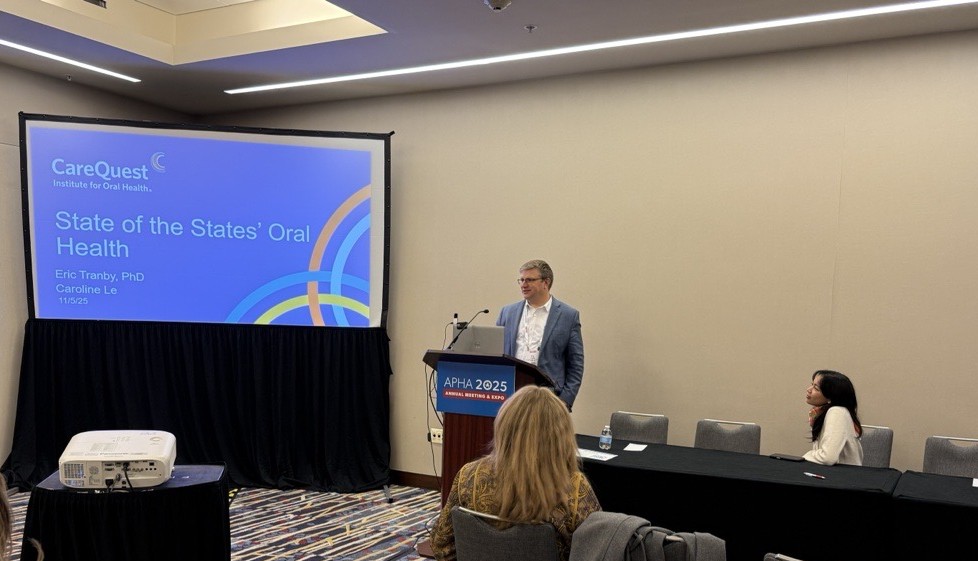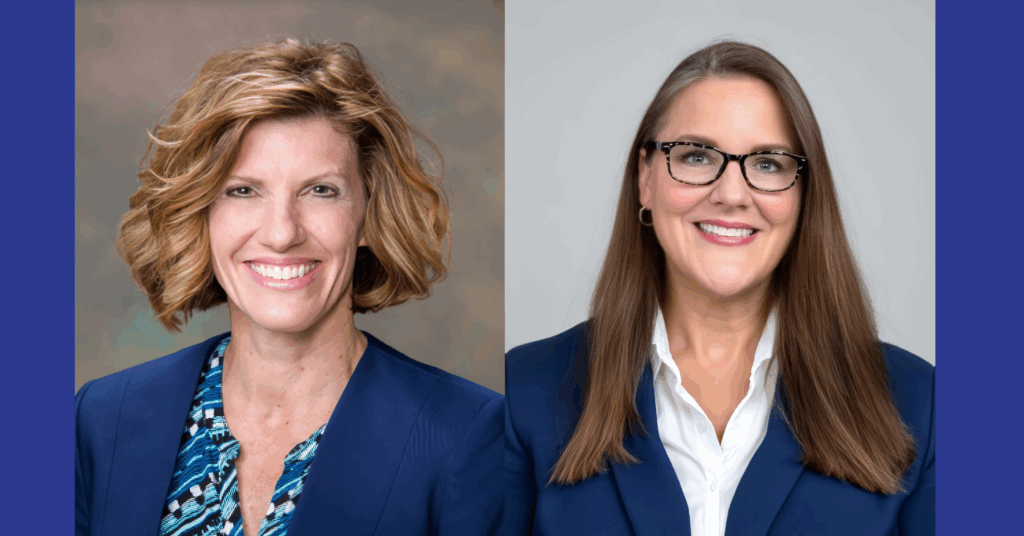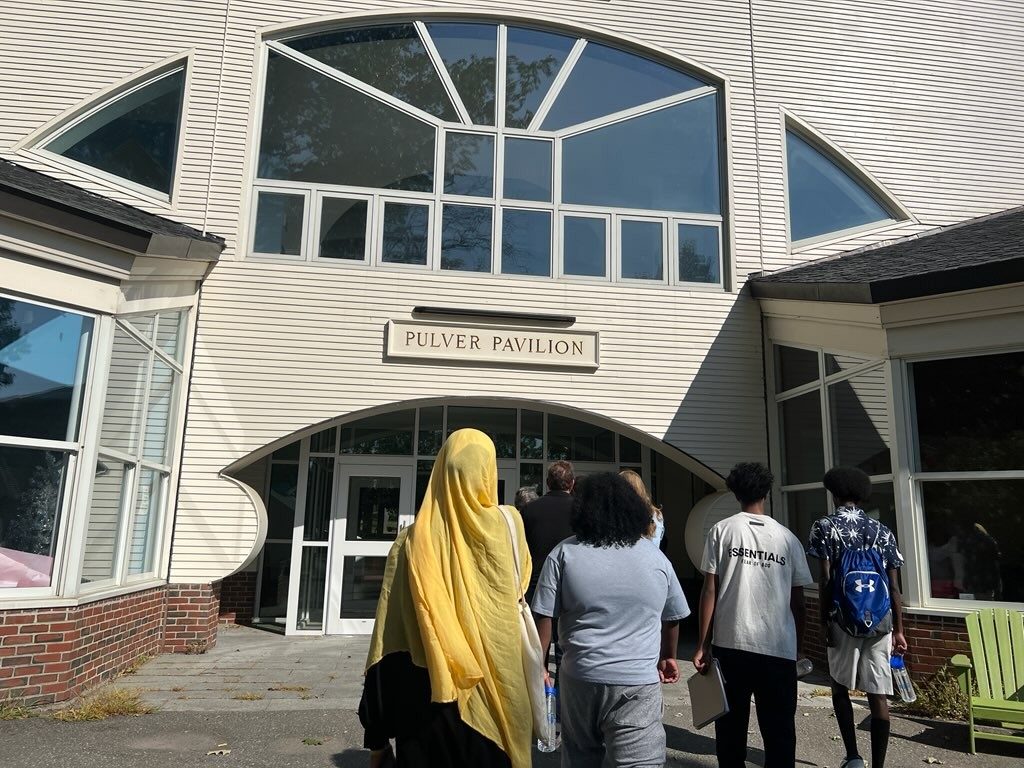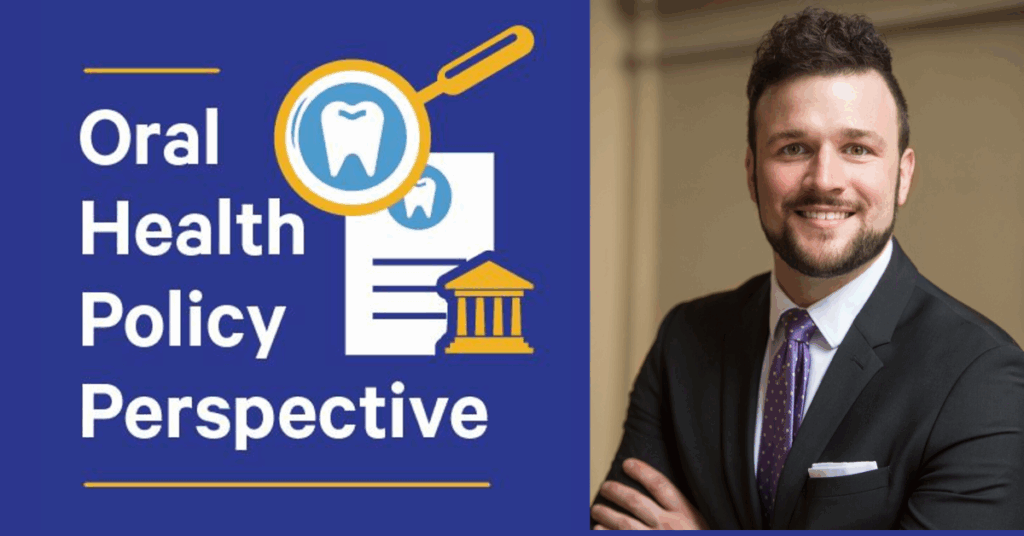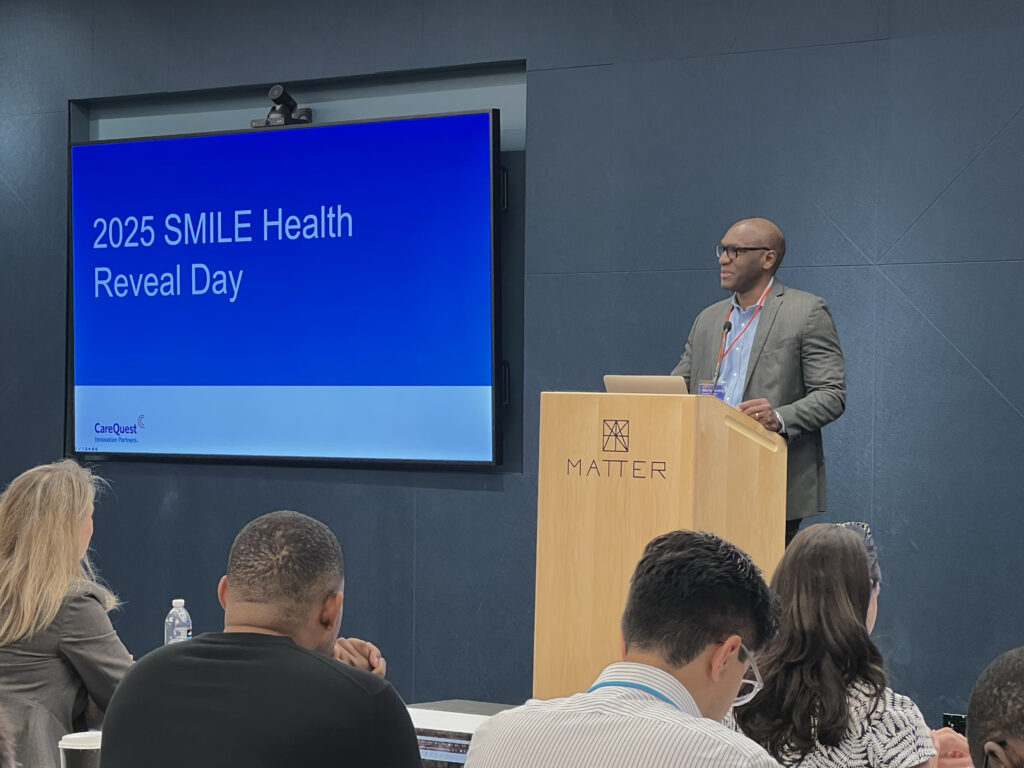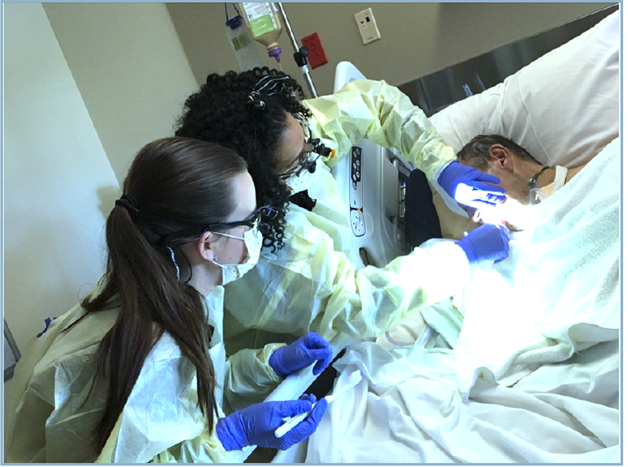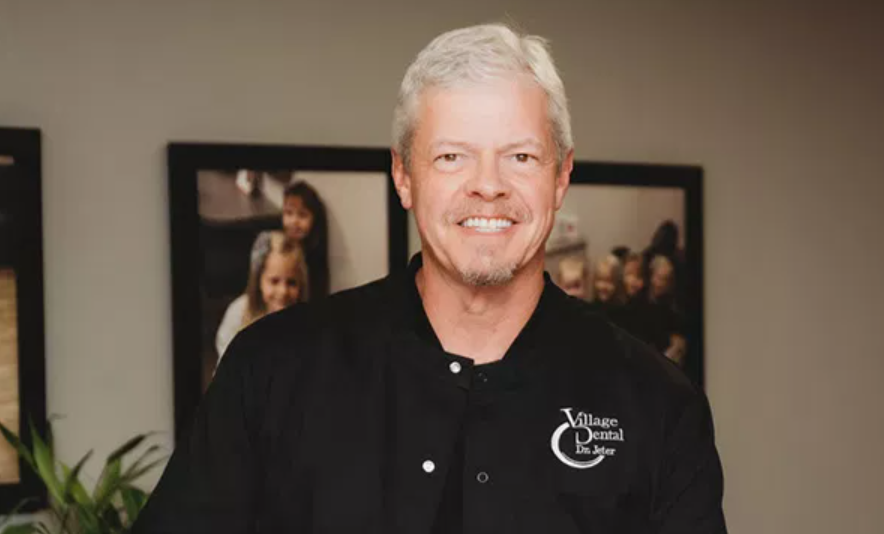Blog
Explore our blog to find the stories, perspectives, and ideas that paint a picture of progress and change in oral health.
Worth a Read: The 5 Most Popular CareQuest Institute Publications of 2025
How many adults in the US do not have dental insurance? What’s the value of integrating oral health into interprofessional education? How much...
Successes and Setbacks: 9 Quotes about Oral Health in 2025
2025 brought significant challenges for the oral health system in the US, deepening what many already believe is a crisis. About 72 million...
Advancing Public Health Through Collaboration at APHA
All disciplines across public health under one roof collaborating to “champion optimal, equitable health and well-being for all.” A clear and...
How New Interactive Licensure Maps Are Helping Dental Hygiene Careers
For years, dental hygienists have been frustrated with having to hunt through multiple websites and sources to piece together information about...
Learning to Lead: Teens Connect Community to Oral Health Care
Two programs, two states, and one goal: engaging a younger generation to help people in their communities get access to oral health care. With...
The New Fault Lines on Fluoride in Four States — and What They Mean for Medicaid
Across the country, there’s a new wave of proposals targeting community water fluoridation (CWF) as many states are tightening Medicaid budgets....
A New Perspective: Eight Questions with CareQuest Institute CEO Wade Rakes
Wade Rakes understands that oral health care impacts overall health outcomes. And he’s clear on the obstacles standing in the way of those...
How Hygienists Are Providing Critical Oral Care to ICU Patients
The scene, sadly, is a familiar one: A patient on a ventilator in a hospital bed is surrounded by beeping monitors and the steady hum of...
Better Together: How Interprofessional Learning and Practice Benefits Patients
In medical school, Anthony Marchlewski, MD, didn’t learn much about oral health. But as a resident at ProHealth Care, a community-based health...
Voices from the Field: Dr. Hal Jeter on the Benefits of Alternative Payment Models in Dentistry
As immediate past president of the Ohio Dental Association (ODA) and member of the ODA’s Executive Committee, Hal Jeter, DDS, has had the...
Medicaid Adult Dental Benefits May Be Optional in Some States, but Oral Health Is Not
Federal leaders have made steep cuts to Medicaid in the recent budget and spending bill, but one thing remains clear: Medicaid matters....
Protecting Oral Health Access: How Advocates Can Respond to Medicaid Cuts in the One Big Beautiful Bill Act
More than 78 million people rely on Medicaid for their health care — about one in five people living in the US. The program is also a critical...

